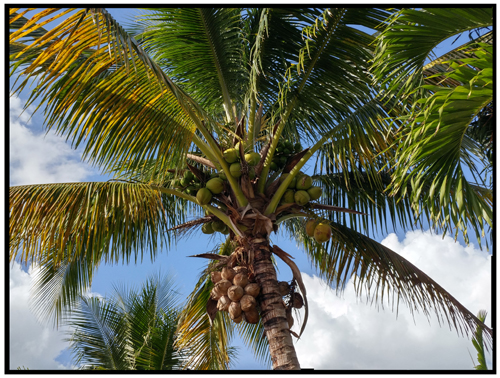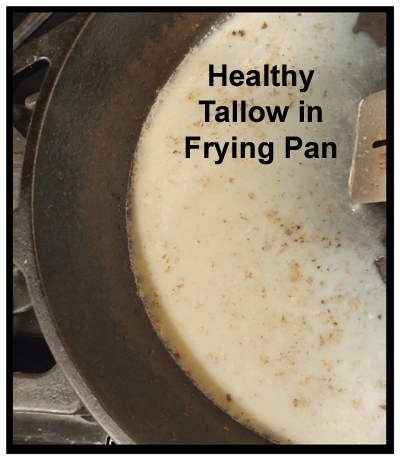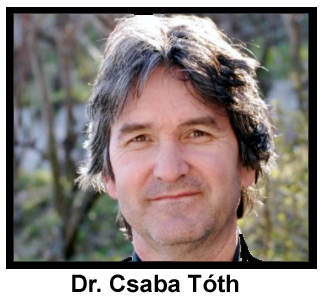Lard vs. Coconut Oil
Column #225
The short answer is . . . lard is much better! But before you can wrap your mind around that simple declarative statement you must understand that cholesterol and saturated fat are not the killers people think they are.
Fat, especially saturated fat from grass-fed and Omega-3 animals, does not cause heart disease, cancer, high cholesterol, obesity, or anything else. Looking back, data clearly shows us that our grandparents and great-grandparents did just fine on their diets loaded with animal fats.
My grandparents had a small farm located near Mount Saint Helens that was typical of the 1900 to 1950 era. Their livestock was mostly dairy cows, laying hens, and meat animals (pigs, steers, chickens). They put up hay and raised corn for very healthy green chop silage to feed the cows in the winter. They also had a filbert orchard and a big garden. Of course they canned fresh vegetables to eat in the winter. The farm not only provided most of their food but a modest income as well.
In spite of all their naturally raised food I remember my mother being appalled by what her parents ate. The cream my grandparents poured into their coffee was so thick it would go plop rather than pour silently. They slathered homemade butter on everything. Meat, eggs, and vegetables were what they usually ate and most often foods were cooked swimming in lard and tallow.
Of course my mother was influenced by the “modern” common knowledge of that time and was already into low fat and low salt in the 1950s. We all know what happened during the years that followed. People got obese and diabetes went from being virtually nonexistent to being very common. So the question is, “Are people heathier today than in the years leading up to 1960?”
The number of cigarette smokers per capita has halved since 1950. Additionally there has been 70 years of medical care advances that include improvements in drugs, immunizations, better diagnosing and treatments, improvements in emergency medical services, and an increase in coronary-care units. Many toxins used in farming and food processing from 1900 to 1960 have been replaced by far safer applications. All of these steps have helped lower death rates because people aren’t dying as fast. But chronic disease incident rates are up. The advice to eat less fat, less salt, and less red meat while consuming more vegetables and whole grains has not helped. If anything, it has made things worse.
Modern research clearly shows how saturated fat increases both HDL (the “good”) cholesterol and LDL (the bad) cholesterol. What people don’t understand is that saturated fat changes LDL from small or dense (bad) LDL to Large LDL which is mostly benign. Consequently, saturated fat does not harm the blood lipid profile like previously believed.1
What is more important, for decades science has strongly indicated that it’s our essential fatty acids (EFAs) we must worry about most. Animal bodies do not regulate EFAs. EFAs come from what animals eat. The two main EFA families are the Omega-6 fats and the Omega-3 fats. Thousands of studies indicate that in order to optimize health the ratio of Omega-6 to Omega-3 in the membranes of our cells should be in balance close to 1:1. As the EFA ratio increases above 4:1 (more Omega-6) incidences of chronic disease also rises. Most Americans today have ratios between 10:1 and 20:1.
Back in 1950 half of all beef sold was grass-fed with EFA ratios of 1:1. Chickens and pigs were raised with grain but they also had access to grass which is the primary source of Omega-3. People ate more of their homegrown Omega-3 vegetables which means they ate less of the Omega-6 grain and nuts. Many mothers provided cod liver oil (more Omega-3) to their family members. In those days the combined diet probably had a much lower EFA ratio than today. So there’s no telling how much better people would have lived health wise in 1950 if they had access to the same medical care we have today. For certain, with all of today’s emphasis on low fat the incident rate of nearly every chronic disease has gotten worse.2 3
Comparing the lower EFA ratio of 1960 with today’s higher ratio may explain why healthcare costs then were 5% of GNP and today they are 18% of the GNP. In 1960 the per capita expenditure for healthcare was $1,526 based on the 2017 dollar. In 2017 the per capita expenditure for healthcare was $9,106. That’s a six times increase in constant dollars. What’s really flabbergasting are the technological advances made since 1960 have lowered the costs of many goods and services, yet they couldn’t lower healthcare costs faster than people were getting sick.4 5 
But let’s get back to this thing about Coconut oil? Why is lard and tallow better? Well, according to Dr. Csaba Tóth, a paleo physician at Paleomedicina in Hungary, it all boils down to nutrients—meaning a chemical analysis.6
He says that “cholesterol, vitamin D, zinc, and selenium” are in the rendered animal fats but not in coconut oil. Lard contains more vitamin E and choline as compared to coconut oil and provides a tad more energy. In fact, when lard and tallow are made from grass-fed and Omega-3 animals the difference in nutrients is even greater.7
“Coconut oil is poor in nutrients,” he says and “if we aim at a wholesome diet we should better avoid coconut oil but eat lard or other types of animal fat, as our ancestors did for centuries. We do not know of any advantage of coconut oil over lard. Coconut oil is obtained through food processing and, as with all vegetable oils, coconut oil reduces the efficiency of the thyroid hormones, thus its consumption may lead to hypothyroidism. As in all vegetable oils, there are lectins in coconut oil which are aggressive biologically active molecules.”8
He contends that the “Omega-6 oils found in lard and other animal fats can be regarded as healthy. As regards their physiological role Omega-6 of animal origin should be discerned from Omega-6 oils coming from plants. Preference for coconut oil roots back to the 80's and 90's when cholesterol and animal fats were declared to be unhealthy.
“Recommendation of coconut oil in any diet, including the paleolithic diet, is unwarranted and not supported by scientific evidence. Pushing coconut oil is emerging as a faulty practice as serious as prohibiting cholesterol and animal fats.”
Keep in mind that only 5% of all known plants are edible. Yet more than 95% of the vertebra animals are edible. Vertebra animals only make up 3% of the animal kingdom and the vast majority of the other 97% are also edible. Plants, plant-based foods, and plant oils can host toxins that can cause harm. And most often the nutritional characteristics of plant foods are poor matches for human requirements. A coconut is the nut of a coconut tree. Yes its meat is edible, but it’s nutrient lite and has no Omega-3. If you are having health issues and are a big fan of coconut, maybe avoiding it is worth a try.9
To your health.
Ted Slanker
Ted Slanker has been reporting on the fundamentals of nutritional research in publications, television and radio appearances, and at conferences since 1999. He condenses complex studies into the basics required for health and well-being. His eBook, The Real Diet of Man, is available online.
For additional reading:
1. Saturated Fat: Good or Bad? By Kris Gunnars, Bsc from Healthline
2. Chart: What Killed Us, Then and Now by Brian Fung from The Atlantic
3. Paleo Foods: Animal Fat by Ashley Noël from Paleoleap
6. Ostracized by the Medical Community, Dr Csaba Tóth Insists the Paleo Keto Diet Is a Groundbreaking Diabetes Treatment by Editor from Diabetes.co.uk
7. Mortality Trends for Selected Smoking-Related Cancers and Breast Cancer -- United States, 1950-1990 from CDC
8. Lard or Coconut Oil by Dr. Csaba Tóth
9. Five Reasons Why Lard Is the New Coconut Oil by Christian Kogler from thedailymeal.com




